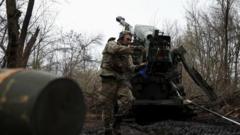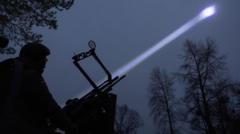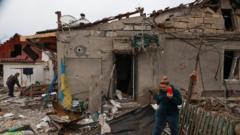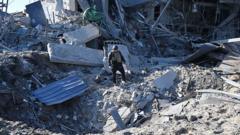**The fragile cease-fire announced by Russia was quickly undermined by actions from both sides, highlighting the difficulties in achieving peace.**
**Tensions Escalate as Ukraine and Russia Clash Over Easter Cease-Fire Violations**

**Tensions Escalate as Ukraine and Russia Clash Over Easter Cease-Fire Violations**
**Both nations trade accusations amidst ongoing conflict, raising concerns over diplomatic efforts.**
In a recent escalation of tensions, Ukraine and Russia have publicly accused each other of breaching a cease-fire established over the Easter weekend. The truce, which was declared by Russian President Vladimir Putin, was intended to last for 30 hours but quickly became mired in conflict. Ukraine’s President Volodymyr Zelensky asserted that Russian forces were responsible for artillery strikes, troop ambushes, and drone attacks, undermining the cease-fire agreement. Meanwhile, Russia’s defense ministry contended that it had adhered to the truce, claiming Ukraine had initiated violations with its drone incursions and nighttime assaults.
A commander from a Ukrainian drone unit remarked on the situation, stating that the fighting during the cease-fire mirrored the intensity and conditions seen since Russia's full-scale invasion began in February 2022. This sentiment echoes a broader belief among military observers: the cease-fire was merely symbolic and had no tangible effect on the realities of warfare on the ground.
In a separate but related development, U.S. Secretary of State Marco Rubio warned that the United States might reconsider its involvement in peace negotiations if significant progress was not achieved. This declaration adds a layer of pressure on Ukraine as it seeks international support.
Additionally, President Trump has indicated that a comprehensive minerals deal with Ukraine is anticipated to be signed soon, a situation that was complicated by recent tensions between national leaders.
The ongoing conflicts and diplomatic rifts illustrate the complexities of the situation in Ukraine, leaving many observers questioning the prospects for lasting peace and stability in the region.





















